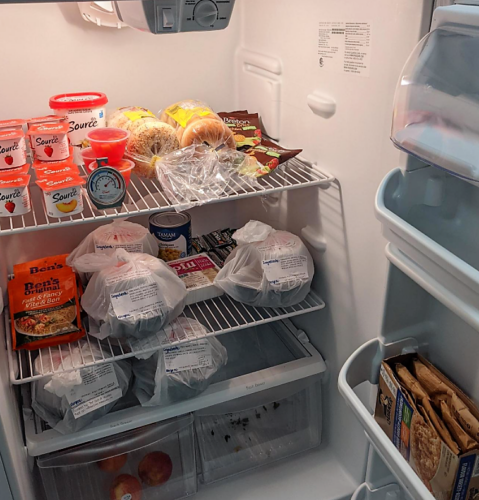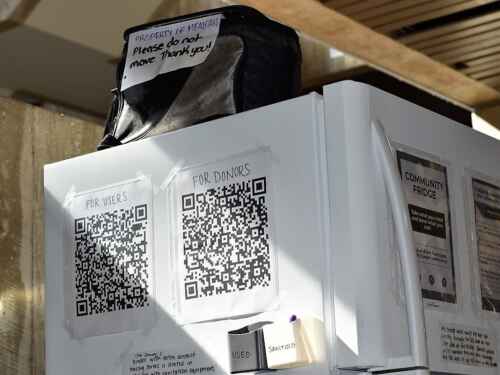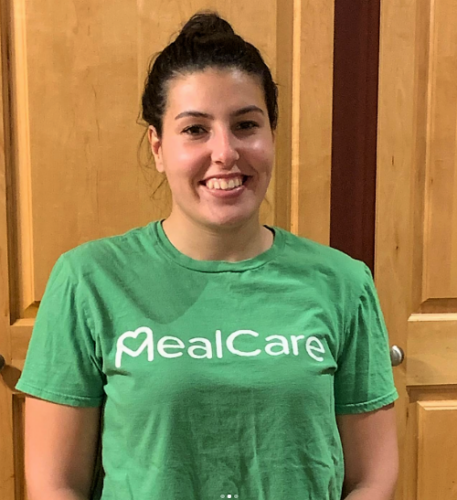
With the cost of food on the rise, accessing fresh and healthy meals has grown increasingly difficult for some University of Guelph students. That’s why the community fridge that opened on campus last year could not have arrived at a better time.
The fridge, located in the University Centre (UC), is stocked regularly with fresh and healthy food by University community members as well as MealCare Guelph, the U of G chapter of a national organization that helps divert food waste and reduce food insecurity in the local community.
Jessica Seifried, a master’s student in the College of Biological Science, is the co-president of MealCare Guelph along with environmental sciences student Sayan Ladhani. She said the point of the fridge is to allow anyone in the U of G community to help themselves to what they need without facing stigma.
“Many people don’t want others to know they’re struggling to pay for food,” she said. “With the fridge, you don’t have to speak to anyone and there are no financial needs assessment forms to fill out. Anyone can just come and take what they need, when they need.”
All that’s asked of users is that they scan a QR code to let organizers know what they take so that inventory can be tracked.
The UC fridge is one of many community fridges that have popped up across the region and the country in recent years and come at a time when the pandemic has worsened hunger and food insecurity for many.
Local restaurant donating meals 4 times a week

The fridge operates on an honour system that Seifried is happy to report has worked well so far.
“People have been very respectful, using the QR to take only what they need,” she said. “The only problem we’ve sometimes had is running low on donations.”
While MealCare manages the fridge, anyone from the U of G community can donate food to keep it stocked. Donations of fresh produce or packaged foods are always welcome. Other donations are also accepted so long as the foods are prepared in an inspected kitchen and are fully labelled with ingredients and allergen warnings.
Recently, a new Korean restaurant in the area offered to provide meals for the fridge.
“The Owl of Minerva is donating five rice- and soup-based meals a day, four days a week to our fridge, as well as any other leftovers they might have,” said Seifried. “That’s been great and we’re very grateful they can help in that way.”
With the Guelph Student FoodBank struggling with cuts to both its budget and its volunteer list, the community fridge is helping to fill the gap.

“The Guelph Student FoodBank is not currently able to accommodate the volume of students who have requested assistance this semester, so many students — especially international students — rely on the fridge for help,” said Seifried.
Along with operating the fridge, MealCare Guelph continues to gather and package up leftover, campus-prepared food to donate to local service organizations in Guelph.
This semester alone, they’ve donated more than 1,000 lbs. of edible food. Leftovers from the UC Chef’s Hall are donated to the Royal City Mission, extra food from Creelman Hall is donated to the Guelph Food Bank, and leftovers from the Child Care and Learning Centre on campus go to the Guelph Student FoodBank.
Since launching in 2019, MealCare has donated more than 22,000 lbs. of food to the community.
MealCare Guelph is an accredited Central Student Association club with 22 volunteers, an executive and a member voting system. Elections for a new executive and volunteer roster will be held on Monday, March 28.
Contact:
MealCare Guelph
mealcare@uoguelph.ca
